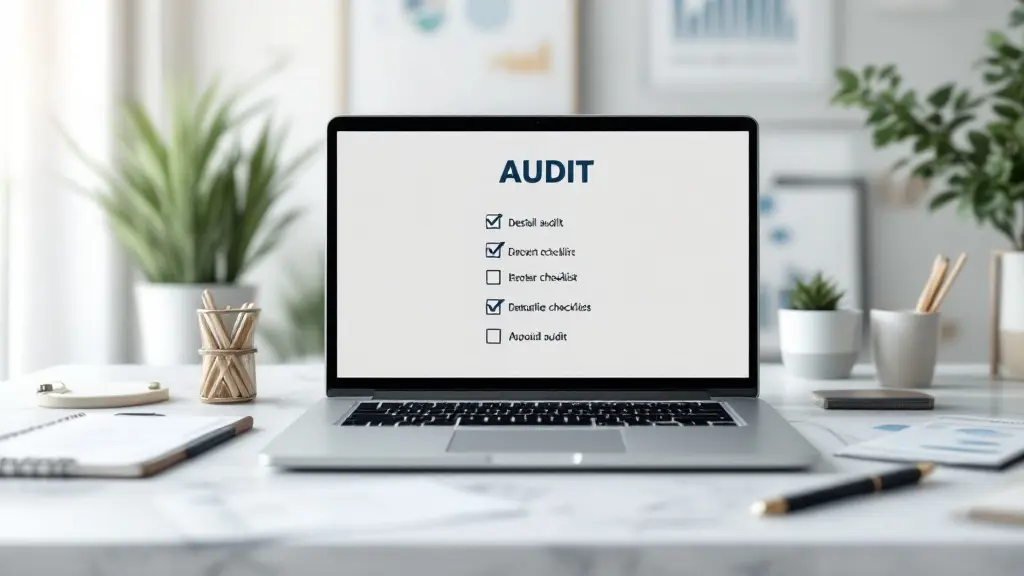Understanding Accounting Tests: A Comprehensive Guide
Table of Contents
Most Read
Introduction
[fusion_dropcap class="fusion-content-tb-dropcap"]I[/fusion_dropcap]n the world of finance and business, accounting tests play a crucial role in assessing a company’s financial health and compliance with legal standards. Whether you’re a student trying to ace your accounting exams or a business owner looking to better understand your company’s finances, accounting tests are essential. In this guide, we’ll dive deep into what accounting tests are, why they matter, and how you can use them effectively.
What Is an Accounting Test?
An accounting test is an evaluation designed to measure an individual’s understanding of accounting principles and their ability to apply them in real-world scenarios. These tests are typically used in academic settings to evaluate students’ knowledge of accounting concepts. However, they also have significant implications in professional environments, where accounting tests are used to assess the accuracy, reliability, and efficiency of financial reporting.
In essence, accounting tests can range from simple quizzes on accounting terminology to more complex examinations of financial statements, audits, and financial performance metrics.
The Importance of Accounting Tests
Accounting tests are more than just academic exercises; they provide valuable insights into a company’s financial condition. Here’s why they matter:
- Accuracy of Financial Reporting: Regular accounting tests ensure that financial statements are prepared correctly, helping businesses avoid costly errors and maintain compliance with regulations.
- Regulatory Compliance: Businesses are required to follow specific accounting rules and standards (like GAAP or IFRS). Accounting tests help verify whether these standards are being adhered to.
- Decision-Making: Reliable financial reports are crucial for making informed business decisions. A company’s accounting test results can help guide management in key areas like investment, budgeting, and tax planning.
- Education and Certification: For students and professionals, accounting tests serve as an essential tool for certification and qualification, ensuring that they meet the standards required in the field.
Types of Accounting Tests
Accounting tests can be broadly categorized into the following types:
1. Conceptual Tests
These tests assess your understanding of fundamental accounting concepts like:
- Double-entry system
- Accounting principles (e.g., accrual basis, consistency, going concern)
- Classification of accounts (assets, liabilities, equity, income, expenses)
These are typically found in academic exams and certification courses.
2. Practical Tests
Practical tests are designed to evaluate how well you can apply accounting knowledge to real-world scenarios. These might include:
- Preparing financial statements (income statement, balance sheet, cash flow)
- Journaling and posting transactions
- Completing trial balances and adjusting entries
These tests are essential for anyone pursuing a career in accounting or finance, as they ensure that the individual can handle the day-to-day responsibilities of an accountant.
3. Compliance and Regulatory Tests
In the professional world, compliance with accounting standards is a critical aspect of business operations. Accounting tests in this category examine knowledge of regulations such as:
- GAAP (Generally Accepted Accounting Principles)
- IFRS (International Financial Reporting Standards)
- Tax laws and audit regulations
These tests are essential for accountants and auditors working in regulated industries.
4. Audit and Internal Control Tests
These tests focus on the effectiveness of internal controls and audit procedures within an organization. They help ensure that financial data is accurate and that the company is not exposed to fraud or errors.
Preparing for an Accounting Test
Effective preparation for accounting tests involves both theoretical knowledge and practical application. Here are some tips to help you ace your next accounting test:
1. Understand the Key Accounting Principles
Before you attempt an accounting test, make sure you have a solid understanding of accounting fundamentals. This includes knowledge of:
- The Accounting Equation: Assets = Liabilities + Equity
- Double-Entry Bookkeeping: Every transaction affects at least two accounts.
- Revenue Recognition: When and how revenue is recognized in financial statements.
- Matching Principle: Expenses are matched with revenues in the period they are incurred.
2. Practice with Real-World Examples
The best way to solidify your accounting skills is through practice. Use sample accounting problems or real-world case studies to apply your knowledge. This will help you prepare for practical accounting tests, where you may need to analyze financial statements or record transactions.
3. Stay Updated on Regulations
Accounting standards and tax regulations can change frequently. It’s important to stay informed about any updates to GAAP, IFRS, or tax laws that may impact your test. This is especially critical for those preparing for professional exams or certifications.
4. Work on Time Management
Many accounting tests are time-bound. Practice solving problems under time constraints to develop your time-management skills. Being able to efficiently complete tasks while maintaining accuracy is essential, especially in professional settings.
5. Use Accounting Software
Familiarize yourself with popular accounting software like QuickBooks, Xero, or Tally. These tools are commonly used in real-world accounting tests and business operations. Understanding how to navigate these tools can give you an edge, especially in practical or compliance tests.
How Accounting Tests Can Benefit Your Business
Accounting tests aren’t just for students or accountants; they can also be beneficial for businesses. Here’s how:
1. Improved Financial Accuracy
Regular internal accounting tests can help businesses identify errors or inconsistencies in their financial data before they become bigger issues. This can prevent costly mistakes, fines, or penalties from inaccurate reporting.
2. Strengthening Internal Controls
By regularly testing internal controls, businesses can improve their financial security and reduce the risk of fraud. Effective testing can highlight weaknesses in accounting procedures and suggest improvements to mitigate these risks.
3. Enhancing Decision-Making
Accurate and reliable financial data is the foundation of sound business decision-making. With well-conducted accounting tests, businesses can ensure that their financial reports are trustworthy, leading to better decisions regarding investments, growth, and resource allocation.
4. Compliance Assurance
As businesses grow and expand, they must comply with an increasing number of regulations. Regular accounting tests help ensure that the company adheres to accounting standards, tax laws, and industry-specific regulations.
Common Mistakes to Avoid in Accounting Tests
When preparing for an accounting test, it’s easy to make mistakes that can cost you points. Here are some common pitfalls to avoid:
- Ignoring Small Details: Accounting is all about precision. Missing a small detail, such as a decimal point or a misclassified transaction, can lead to significant errors.
- Lack of Understanding of the Basics: Without a strong grasp of basic accounting principles, more complex topics will seem impossible to understand. Make sure to build your knowledge from the ground up.
- Skipping Practice: Simply reading textbooks or notes won’t prepare you for practical tests. Be sure to practice solving problems to improve your application of accounting principles.
- Relying on Memorization: Accounting is not about rote memorization; it’s about understanding how concepts work together. Focus on learning the “why” behind each principle.
Conclusion
Accounting tests are essential tools for both students and professionals in the field of finance. Whether you’re preparing for an exam or running a business, understanding accounting principles and performing regular tests is vital for financial success. By staying informed, practicing regularly, and avoiding common mistakes, you can improve your accounting skills and ensure your financial data is both accurate and reliable.
For businesses, investing in regular accounting tests can strengthen internal controls, ensure compliance, and provide valuable insights that lead to better decision-making. Whether you’re studying accounting or managing a business, mastering accounting tests will set you on the path to financial success.
This blog post structure is designed to be SEO-friendly and easy to read, while also providing valuable insights on the topic of accounting tests.









